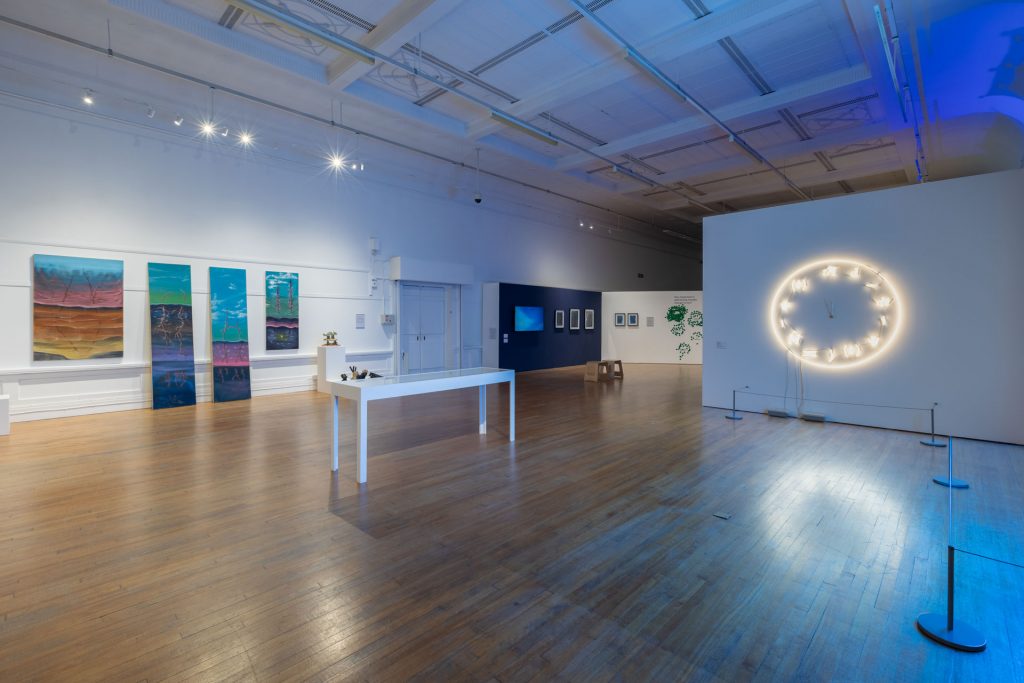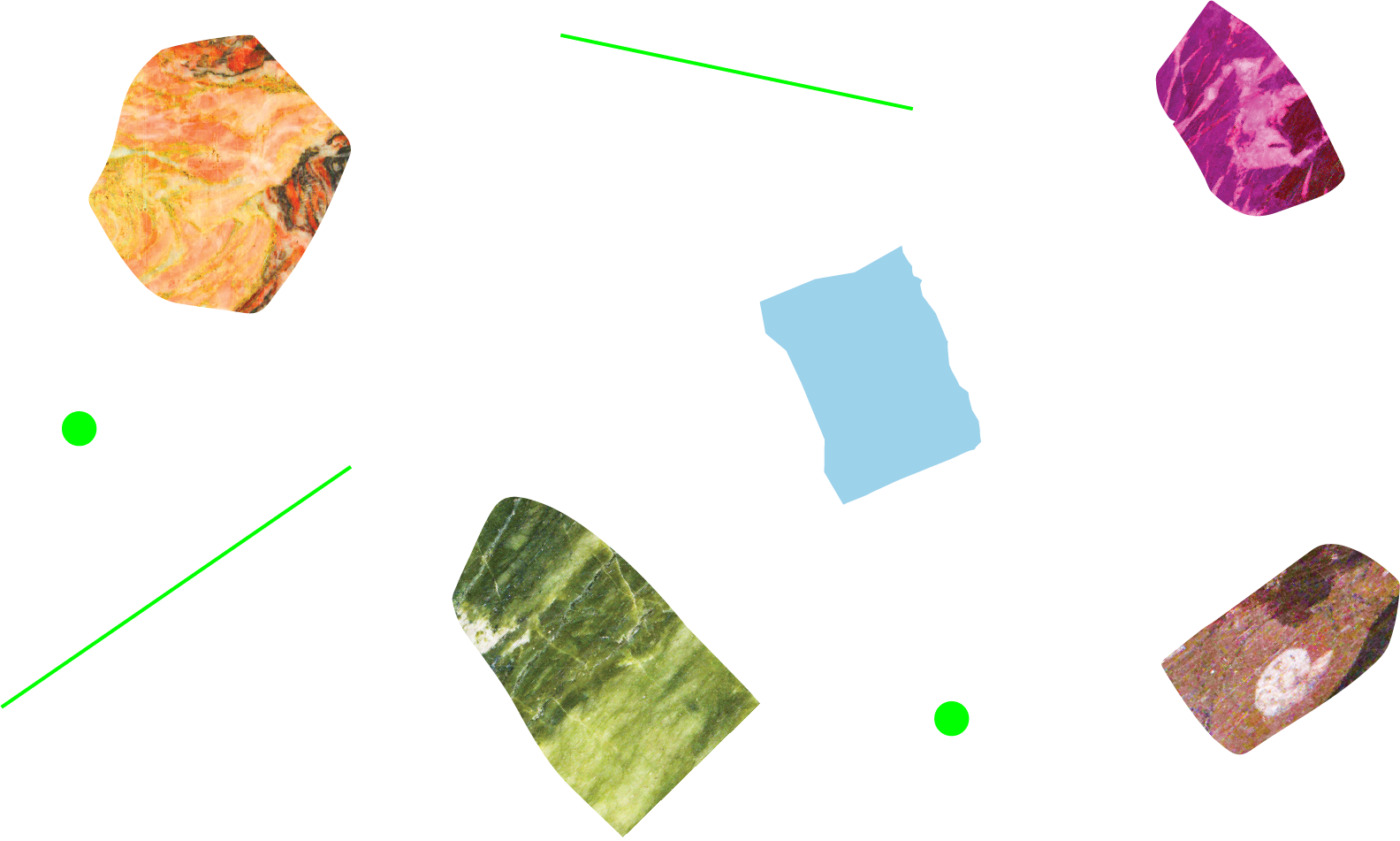
Hybrid Futures aimed to address environmental sustainability through both organisational practices and programming, working with Sustainability Advisor Danny Chivers.
Danny worked with each partner organisation throughout the project to review their current environmental practices, impacts, targets and action plans, and to investigate ways to minimise the negative – and boost the positive – environmental impacts of the Hybrid Futures exhibitions and events, and of the partners’ broader activities into the future.
The partner organisations each gathered data to help assess their carbon footprint, and a case study from each organisation is available to download below. Please note that these were prepared initially for internal use, but have been shared here for transparency and wider learning. Each phase of the project varied in duration, scale, location and time of year (which can e.g. impact energy use) so are provided for a general overview rather than like-for-like comparison.
Overall, the reports found good awareness, good existing practices within resources, and positive improvements across all partners. Each organisation committed to a minimum of three actions to take forward as a legacy of the project, which you can also find below.
You can contact us at: artcollection@salford.ac.uk for any further information.
Case Studies & Legacy Commitments

HYBRID FUTURES exhibition at Salford Museum and Art Gallery
Salford, 23rd March – 22nd September 2024.
Hybrid Futures brought together artworks by Shezad Dawood, Jessica El Mal, Parham Ghalamdar and RA Walden that explore the impact of climate change.
The exhibition featured new work and co-commissions by each of the artists, ranging from film, neon and sound installation to painting and sculpture made over the length of the Hybrid Futures project.
Case study:
Read the headline results in this pdf.
Legacy commitments from the University of Salford Art Collection:
1. Writing a sustainability commitment into all of our future contracts with artists and partners.
2. Developing and publishing a new set of sustainability principles for the art collection team.
3. Committing to continuous future programming around themes of nature, environment, climate and sustainability
You can read more about the University of Salford Art Collection’s Sustainability Principles here.

The Poetics of Water at Castlefield Gallery
Manchester, 25th June – 24th September 2023.
The Poetics of Water featured new work by Jessica El Mal and Parham Ghalamdar that was motivated by the effects of capitalism, corruption and colonialism on the natural environment.
Case study:
Read the headline results in this pdf.

GRUNDY x LIGHTPOOL x HYBRID FUTURES
Blackpool, 10th October – 16th December 2023.
GRUNDY x LIGHTPOOL x HYBRID FUTURES featured two neon pieces by artists RA Walden and Shezad Dawood, part of a larger light-themed programme by the Grundy featured in the town’s annual Lightpool festival.
Case study:
Read the headline results in this pdf.
Legacy commitments:
1. Inclusion of a sustainability pledge into artists contracts.
2. Commitment to continue to commission, curate and collect work addressing the climate crisis.
3. Commitment to ongoing awareness raising and training in the team.

Leviathan: From the Forest to the Sea exhibition at Touchstones, Rochdale 3rd June- 12th August 2023
Leviathan: From the Forest to the Sea featured the 8th film in Shezad Dawood’s Leviathan Cycle, plus a series of physical artworks – and was the first of the Hybrid Futures exhibitions to open.
Case study:
Read the headline results in this pdf.
Legacy commitments:
Touchstones have nine new sustainability targets in their 2025 to 2030 Strategy, including:
1. 75% of the materials used to deliver and present creative programmes will be re-used, recycled, or sustainably sourced.
2. Creation of an Environmental Impact Assessment Framework that can be used to guide decision-making at every level of the service.
3. Co-creating with local communities: a growing garden and biodiverse/wildlife-friendly landscaping surrounding Touchstones.
Resources / further reading:
In April 2023, the Gallery Climate Coalition launched a new guide to help non-profit arts organisations to create an environmental action plan. You can read it here.
Julie’s Bicycle’s Creative Climate Justice Hub is aimed at creative practitioners who want to gain a deeper understanding of the topic of climate justice and ways to respond to it.
Culture Declares Emergency have an inspiring list of case studies, of other cultural organisations who are taking creative climate action.
About Danny Chivers, Sustainability Advisor:
Danny Chivers is the Sustainability Advisor for Hybrid Futures. He has 15 years of experience as a freelance carbon analyst and climate action consultant. He has acted as the lead external carbon consultant for many organisations from a range of sectors, specialising in international humanitarian charities and art galleries.
Danny has acted as Sustainability Advisor to the Gallery Climate Coalition (GCC) since its earliest stages. Formed in 2020 by a group of London art galleries, GCC now has over 800 members in multiple countries, all of whom have pledged to at least halve their carbon emissions by 2030. Danny has supported GCC in the development of a user-friendly carbon footprint calculator specifically for art galleries; carried out carbon audits for individual arts organisations and helped them to set ambitious reduction targets; worked with the artist Gary Hume and art shippers Cadogan Tate on a foundational study showing that sending art by sea rather than air can reduce its transport footprint by 90%; written guidance for art galleries on measuring and managing their carbon footprint, as part of GCC’s “Decarbonisation Action Plan” for arts organisations; and collated best practice and provided general or bespoke carbon footprinting advice to dozens of arts organisations.
He holds a BSc in Environmental Biology, an MSc in Nature, Science and Environmental Policy and an MProf in Leadership for Sustainable Development. He writes a regular climate column for New Internationalist Magazine and is the author of “The No-Nonsense Guide to Climate Change” and “No-Nonsense Renewable Energy”.









